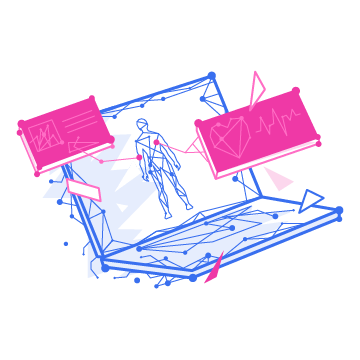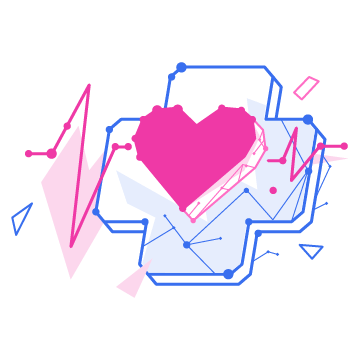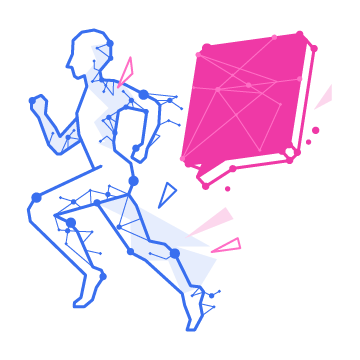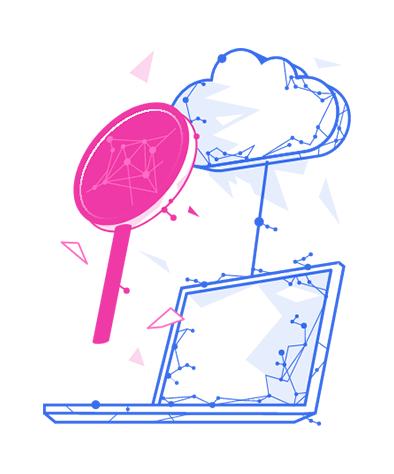
The demand for tailored health and wellness solutions has gained popularity post-pandemic as individuals focus more on improving the general quality of life. AI can revolutionize this industry by offering data-driven and customized solutions to individuals in various cases. Consumers and industry professionals can gain valuable insight and improve their lifestyles with AI-powered, easy-to-access tools.
Drug-Free Pain Management Tools
AI-powered drug-free pain management tools are changing how people approach pain management and constitute an important area of healthcare innovation. These tools can enhance the lives of millions of individuals who suffer from chronic pain. The tools offer more tailored and effective pain treatment solutions without incorporating traditional painkillers.
AI-powered drug-free pain treatment solutions assess a person’s pain patterns and make individualized suggestions for non-pharmacological therapies. These technologies can detect trends in data and recommend therapies such as physical therapy, massage, acupuncture, or cognitive-behavioral therapy. Furthermore, the tools encourage a more holistic approach to pain management by lowering dependency on medication-based therapies. These tools can assist consumers in avoiding potential adverse effects and hazards linked with medicine, such as addiction.
One of the primary advantages of drug-free pain management tools is that they allow people to control their pain more efficiently and with fewer adverse effects. This advantage leads to an enhanced quality of life and higher productivity for people who suffer from chronic pain. Researchers can also better understand pain recovery behavior and suggest better non-pharmacological therapies.
Healthcare practitioners with access to user data on the success of various therapies may make better-educated treatment decisions. Doing so may allow them to offer individualized pain management suggestions or tweak the treatment plan for more targeted pain management.
Beneficiaries:

Personalized Skin Care Product Recommendation
AI’s machine learning algorithms assist in adapting skincare routines to an individual’s specific skin type, issues, and objectives. These tools analyze skin data to deliver individualized suggestions for optimal skin health. This skincare recommendation method differs from the typical one-size-fits-all solutions and generic advice.
The algorithms can detect trends in the data and recommend ways to improve skin health outcomes and achieve skin objectives. Furthermore, individualized skin care product suggestions can inform customers about the components and composition of various skincare products. This information assists in making educated decisions about which products to use and which to avoid based on certain allergenic ingredients.
Another advantage of tailored skincare product recommendations is that they may assist consumers in more efficiently achieving their skin health goals. Moreover, skincare firms may profit from this strategy by receiving insights into consumer preferences and trends. Doing so can lead to enhanced customer satisfaction and loyalty.
Skincare professionals may also use data-driven skincare plans to guide their clients and identify updated skincare procedures best fit individual goals.
Beneficiaries:

Home Automation Systems for Accessibility and Safety for People with Disabilities
People with disabilities’ houses are becoming more accessible and secure thanks to AI-powered home automation systems. These systems use AI and IoT to deliver specialized solutions that can support disabled people in living freely and safely.
Home automation systems evaluate data from cameras and sensors throughout the house to find possible dangers and send out alerts and notifications. These systems may also learn from user behavior and gradually adjust to meet their demands. Home automation solutions for safety and accessibility may also provide people with disabilities more autonomy and control through user-friendly interfaces.
These systems, including voice-powered tools and other sensor-driven tasks, can enable people with disabilities to live freely and safely. Moreover, it gives them the assurance and security they need to go about their everyday lives without assistance.
AI-powered systems further assist caretakers and medical experts by giving them useful information about the user’s actions and behavior. They can give more individualized suggestions for enhancing health outcomes and making well-informed treatment decisions.
With knowledge of consumer preferences and trends, home automation systems for accessibility and safety may also help house builders and designers construct inclusive and accessible homes.
Beneficiaries:

Personalized Nutrition Plans
AI-powered personalized nutrition regimens cater to a person’s food and nutrition to their needs, objectives, and tastes. These nutrition plans are superior to conventional, generic ones, factoring in parameters like age, gender, weight, exercise level, and health issues.
AI-powered customized nutrition plans use machine learning algorithms to assess data on a person’s food, way of life, and health to offer tailored suggestions for optimal nutrition. By maximizing nutritional consumption and enhancing health outcomes, these suggestions can assist people in efficiently reaching their health and fitness goals.
Healthcare professionals may benefit from tailored nutrition programs by providing relevant knowledge about their patients’ diets and nutrition. Thanks to this knowledge, they can offer more targeted ideas for improving health outcomes.
Furthermore, food companies and restaurants with data about customer trends and tastes can benefit from these AI-powered nutrition programs. These insights could allow them to design more tailored products and menus to cater to their customer base.
Beneficiaries:

Personalized Wellness Activities Recommendation on Tours
The tourism business is changing due to AI-powered individualized wellness activity recommendations on tours. Using AI algorithms, tour operators and wellness experts may offer individualized suggestions for wellness activities. These algorithms factor in a person’s interests, preferences, and objectives.
AI-powered wellness activity suggestions examine a person’s health background, way of life, and preferences to create a personalized plan that suits their particular requirements. These programs consider variables, including age, gender, physical activity level, and nutritional preferences, for a precise recommendation.
Tour operators may use tailored wellness activity suggestions to create tours and provide specialized packages that meet the specific wellness objectives of their clients. These packages could include yoga retreats, spa services, or lessons in meditation and mindfulness.
By offering personalized advice to their consumers, wellness experts like nutritionists and fitness trainers may profit from this AI use case. To improve general health and well-being, they can prescribe wellness activities based on their clients’ health data analyses. People may choose their vacation and health activities resembling their taste with greater knowledge.
Beneficiaries:

Human Emotion Detection While Driving to Prevent Accidents
AI-powered emotion detection while driving is a ground-breaking use case that increases road safety by identifying drivers’ emotions and minimizes accidents brought on by emotional discomfort. Real-time analysis of the driver’s body language and facial expressions is performed by an AI system using computer vision and deep learning techniques.
With this technology, it is possible to identify changes in emotional states, like tension and weariness, and notify the driver to take necessary actions. Moreover, with enhanced technologies in e-vehicles, this tool may help prevent accidents by taking appropriate action.
The system may also assess driving behaviors to identify indicators of attention or tiredness, including steering patterns and response times. By evaluating these behaviors, accidents brought on by these circumstances can be avoided.
AI-based emotion recognition has the potential to improve road safety and minimize the number of accidents that occur. Furthermore, insurers and automakers can benefit greatly from the information that AI-powered emotion detection can offer. This knowledge might be useful in creating safer automobiles and better driver education courses.
u003cdiv id=u0022gtx-transu0022 style=u0022position: absolute;left: 425px;top: 150pxu0022u003e
u003cdiv class=u0022gtx-trans-iconu0022u003eu003c/divu003e
u003c/divu003e
Beneficiaries:

Physical Therapy Software
AI-powered physical therapy software is transforming healthcare by offering patients individualized and effective rehabilitation options. The program creates a personalized treatment plan using machine learning algorithms and examines a patient’s medical history, physical capabilities, and rehabilitation goals.
An AI-powered treatment software can help those with recent operations or injuries needing occupational therapists. Patients undergo individualized workouts and therapy sessions, and their development is monitored over time. Invaluable patient data is also made available to healthcare personnel using this technology, allowing them to modify treatment plans and deliver better care.
Patients undergoing rehabilitation exercises can change their motions in real-time to reduce the risk of injury and enhance performance. Hence, more specific and tailored therapy approaches can help patients recover quickly. Automation may also let professionals concentrate on providing individualized treatment by delegating administrative tasks to AI.
Beneficiaries:

Check our Physical therapy mobile solution
Real-Time Exercise Directions through Apps
Personalized coaching and advice during exercises provided through real-time exercise direction through apps are revolutionizing people’s exercise. These applications examine a user’s fitness level, exercise history, and health objectives using machine learning algorithms to create a customized workout regimen.
The software coaches and gives real-time feedback to users while they exercise. These features guide users through routines and assist them in adjusting their actions for optimum performance and injury avoidance. Live video chat with a professional trainer may also increase one-on-one coaching for a more targeted fitness goal achievement.
Apps for real-time exercise guidance may also keep track of a user’s progress over time, revealing their fitness level and pointing out areas for development. This information can support people in maintaining motivation and effectively achieving their exercise objectives.
Real-time exercise direction applications can also aid fitness experts, giving them useful information on their customers’ progress and results. This information enables them to modify training schedules and deliver more effective coaching.
Apps providing real-time workout guidance may generally assist users in exercising more successfully, securely, and efficiently. Hence, it makes reaching their fitness objectives easier for users.
Beneficiaries:

Wellness Resort Suggestions
AI-powered wellness resort suggestion tools employ machine learning algorithms to offer tailored suggestions for wellness retreats. These tools may factor in a person’s tastes, requirements, and budget. These systems assess variables including location, the kind of wellness activities, and desired facilities to recommend retreats most suitable for a user’s requirements.
Moreover, depending on client feedback, facilities, and previous visitor experiences, these AI-powered wellness resort suggestion systems may offer insights about various retreats. These tools may benefit people, saving their time by assisting them in locating the ideal health retreats. AI-powered wellness resort suggestion systems also aid people in more efficiently achieving their wellness objectives by advising getaways that suit their requirements and tastes.
These technologies help operators of health retreats by introducing them to people who are more inclined to take advantage of and appreciate their offers. Increased client loyalty and satisfaction might result from doing this.
Tour guides may also use these technologies to provide original suggestions to their customers. Tourism-related government agencies can also gain insights and promote tourism in areas with abundant wellness farms.
Beneficiaries:

Wearable Fitness Monitoring Technology
Wearable fitness tracking devices revolutionize how people monitor their physical activity and health. With this technology, wellness can now be approached more individually. Hence, it may eventually benefit the health of the individual and the general public.
Wearable fitness monitoring technology tracks physical activity and health parameters using sensors in gadgets like fitness trackers and smartwatches. AI-powered machine learning algorithms evaluate the data to offer individualized insights and suggestions for enhancing fitness and health. These tools chart progress over time and find areas for growth using metrics such as heart rate, steps taken, calories burned, and sleep patterns.
Personalized insights and suggestions from this technology can help people maintain a healthy lifestyle. Moreover, healthcare professionals can utilize this information to make better decisions regarding patient care and illness prevention. Companies may encourage employee productivity and well-being by offering wearable technology and wellness initiatives.
Beneficiaries:

Process Automation
With the power of AI algorithms, health and wellness professionals can analyze vast amounts of data to gain valuable insights into patient health and well-being. This enables practitioners to make informed decisions regarding treatment plans, preventive care measures, and lifestyle interventions tailored to individual needs.
AI-powered virtual assistants and chatbots provide instant responses to inquiries, offer personalized health advice, and guide individuals through their wellness journey, enhancing overall customer satisfaction and engagement.
Furthermore, AI-driven automation is enhancing administrative tasks in healthcare settings, such as appointment scheduling, medical record management, and billing processes. By automating these routine tasks, healthcare providers can streamline operations, reduce administrative burden, and allocate more time and resources to patient care.
Investors and stakeholders in the health and wellness industry also stand to benefit from AI-driven insights. These insights can identify emerging trends, forecast market demands, and optimize investment strategies in areas such as digital health technologies, wellness programs, and healthcare facilities.
Beneficiaries:
Interactive Knowledge Base
By providing access to up-to-date medical literature, treatment guidelines, and best practices, the knowledge base helps clinicians stay informed and make evidence-based decisions that improve patient safety and quality of care.
AI knowledge base assists healthcare professionals in selecting the most effective treatment options for individual patients based on their medical history, genetic makeup, and other relevant factors. This ensures that patients receive personalized care that is tailored to their specific needs, leading to better treatment outcomes and reduced adverse effects.
AI-driven knowledge base can analyze individual customer data, including fitness goals, preferences, and performance metrics, to generate personalized fitness plans. These plans can incorporate tailored workout routines, nutritional guidance, and lifestyle recommendations, ensuring that each customer receives a customized fitness experience that aligns with their specific needs and objectives.
Interactive knowledge base powered by artificial intelligence can also be utilized to educate patients about their health conditions, treatment options, and self-care strategies. By providing access to reliable, easy-to-understand health information, the knowledge base empowers patients to take an active role in managing their health and making informed decisions about their care.
Beneficiaries:

Check our Fitness studio video streaming solution
Get in touch to learn how our AI powered solutions
can solve your business problem.
